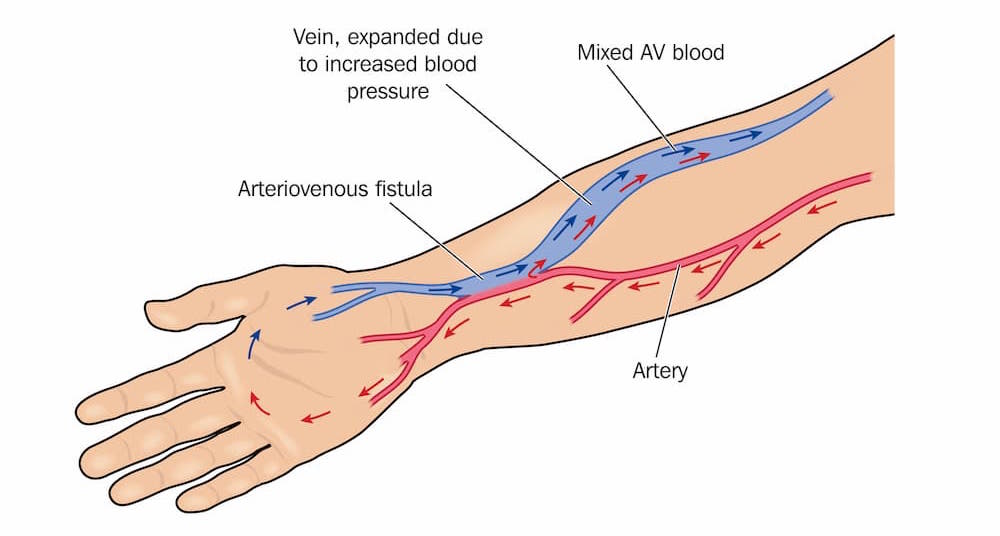VASCULAR ACCESS SURGERY

Fistula formed between artery and vein in the arm to provide greater blood flow to a vein for haemodialysis
Vascular access surgery involves either surgically creating a route (also called a fistula) by which a needle can be inserted into a vein 2-3 times a week to permit dialysis (blood purification in patients with severe kidney disease) to be carried out or insertion of catheters (plastic tubes) into veins for anticancer drugs or antibiotics to be injected over many weeks or months for patients requiring such treatment. This is usually performed at the request of a nephrologist (kidney specialist) or an oncologist (cancer specialist) to help them administer their treatments.
These procedures are carefully planned depending upon the duration for which the access is required as well as the reason why it is needed. Access catheters and fistulae must be monitored on a regular basis to look for blockages or infection developing, both of which can cause the access to fail and for the patients then to not get the life-saving treatment they need.
At the Harley Street Heart and Vascular Centre, our team of vascular specialists and specialist vascular sonographers ensure that all forms of access from PICC lines and chemotherapy ports through to Permanent dialysis catheters and complex fistulae can be assessed, created and monitored and replaced to ensure our patients are supported at every stage of their access journey.
If you require a fistula to be created or a dialysis or chemotherapy port inserted or already have one that requires monitoring, contact us for a consultation and assessment.
